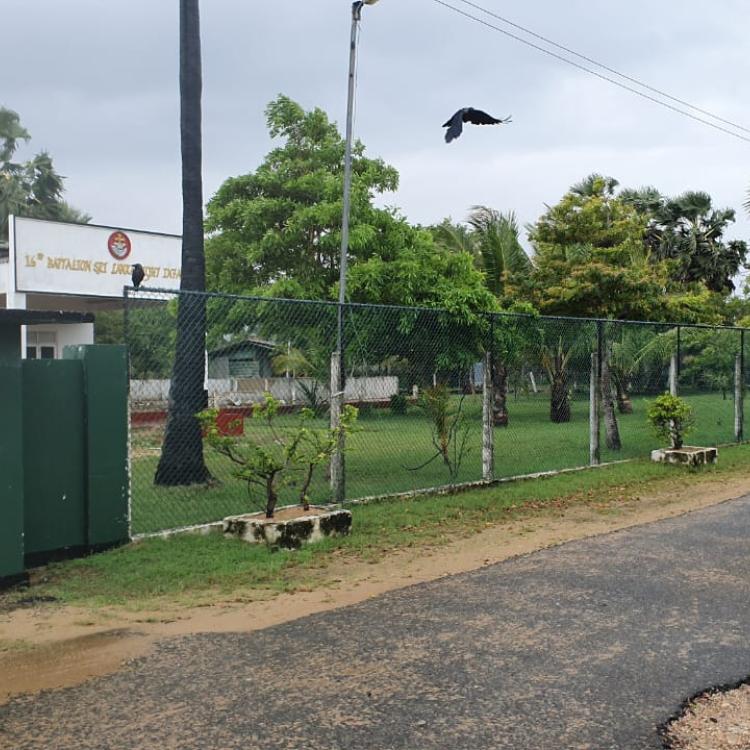.jpg)
The Sri Lankan military has refused to dismantle an occupying base in Karkovalam, Jaffna, despite a decision by the cabinet that the camp be removed.
It was widely reported last month that the occupying land, comprising three acres, will reportedly be returned to its rightful owners, three Tamils from the area, within 14 days of the cabinet decision, which was made on November 18, 2024. Located near the beach and falling under the jurisdiction of the Vadamarachchi North Divisional Secretariat, the camp in question has been operational since 1995, when the Sri Lankan military occupied the Jaffna peninsula.
However, over two weeks have passed since this decision was made, and the military has yet to vacate the area. According to local villagers, there has been no visible effort by the military to leave or comply with the Cabinet's ruling.
The refusal to demilitarise and remove just one camp out of the hundreds which house hundreds and thousands of troops across the North-East illustrates the deep-rooted issues that Tamils in the region face.
Last year, the camp was one of several reportedly slated to be disbanded as part of efforts by the then-Ranil Wickremesinghe government to release lands to Tamils. However, such an initiative never got off the ground, and the base continues to be in active use.
It currently houses the 16th battalion of the Sri Lanka Light Infantry (SLLI).
.jpg)
There have been efforts to expand the camp at least twice in the past. On both occasions, political leaders and the original landowners resisted survey work intended to formalize the acquisition, delaying its complete annexation. In 2021 the owners of the land objected to the army attempting to survey more land for expansion. At the time protesters blocked land surveyors and officials who had come to survey the land and stated the land would not be handed over to the army.
.jpg)
Tamils protest against the camp expansion in 2021.
Across the North-East, hundreds of military camps and bases remain scattered, many of them built on lands forcibly taken from Tamil civilians. Despite years of advocacy by displaced landowners and civil society groups, progress in land issues has been piecemeal.
The scale of militarization in the North-East of Sri Lanka remains staggering. Over 15 years since the end of the armed conflict, the region continues to host an outsized military presence, with armed forces occupying key areas, including fertile agricultural lands, schools, and homes. For decades, this has disrupted the livelihoods of displaced communities while enabling state control over strategically important or resource-rich territories.
Sri Lanka remains one of the most militarized places in the world with the government continuing to allocate significant resources to the defence sector, even amid an ongoing economic crisis.

